There are numerous situations where an individual is required to sign a waiver in order to proceed. Those could include employment, trade secrets, activities that may result in a personal injury, or other situations that require legal documentation.
Often, the legal jargon in these waivers is hard for the average individual to understand and only leave the company or entity protected. An easy example would be the waiver required to join a health club; if the member suffers a personal injury on an exercise machine, they are not entitled to sue. Additionally, companies may require a waiver to be signed that would prevent the employee from suing if they experience a personal injury derived from performing their job.
An Overview of Waivers
Approximately fifteen million suits are filled in the United States each year. These are primarily based on personal injury, acts of violence, and other crimes. Some of these legal suits occur due to a person being injured on the job while performing their regular duties. In such companies, it is common for the employer to require their employees to sign a waiver protecting the company from known common causes of personal injury. It is always best to contact a lawyer to fully understand the document, the potential legal ramifications, and how best to proceed.
A Better Understanding of Waivers
Knowing how to approach a waiver, and what to avoid, requires a knowledge of how they work. Primarily, you should be able to understand everything in the waiver, including any wording that you may find confusing. If possible, it is always a good idea to research a waiver, particularly if it is common. If the entity issuing the waiver was grossly negligent, then there is still a possibility of suing. One should never sign a waiver document without fully reading it to avoid any possible consequences. If any of the wording is suspicious or unintelligible, then signing should be postponed. It additionally helps to research the company or person that is issuing the waiver before signing. Even when a waiver has been signed, there are many situations where damages may still be recovered.
A Look Into the Waiver’s Information
Waivers are typically written in a particular manner to stand up legally. However, there may be confusing sections or aspects that could have an adverse impact on the person signing the document. For that reason, these documents should be read in their entirety and fully understood. Due to the complicated nature of these papers, it is crucial to know your rights when signing a waiver. If the waiver has stipulations or terms that are too vague the document may not stand up in court.
While most common waivers specifically approach liability, many others may be used to sign away the rights of the person involved. There are others required to acknowledge risk when electing to participate in certain activities. When a liability waiver is also included, the defendant will have a much stronger case in court.
Gross Negligence
In the event of gross negligence, it is still possible to file a suit even if a waiver was signed. These instances occur outside of what would be considered normal practices. If a personal injury occurs during normal events, a liability waiver may be enough to protect the company.
Obtaining Legal Assistance When a Waiver is Involved
Initially, you should contact a lawyer to review any waiver that you feel unsure of. Their legal expertise can be beneficial in both helping you understand the waiver and making an informed decision. If you have already signed a waiver and suffered a personal injury or loss, you should contact a lawyer to exam your case. If it is determined that gross negligence was involved, or that the waiver is not legally sound, your attorney may choose to take further legal action.
-
Butler, Vines and Babb is a leading law firm in Knoxville, TN, with extensive litigation experience in Medical Malpractice Law, Birth Injury Law, Trucking Accident Law, Personal Injury Law, and Business Law. Contact us today at www.bvblaw.com or call 865-637-3531.
Please reference BV&B's content disclaimer (located in this channel's profile description) in regard to this shared content.

